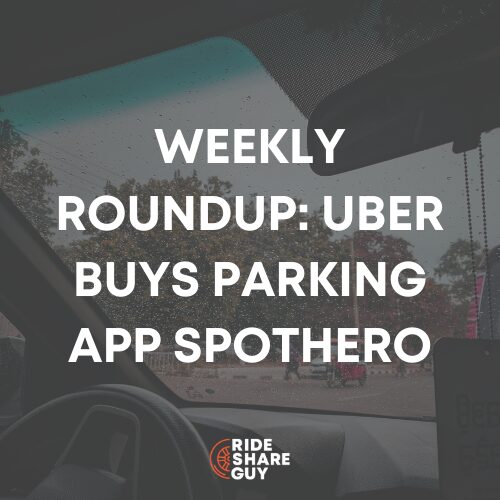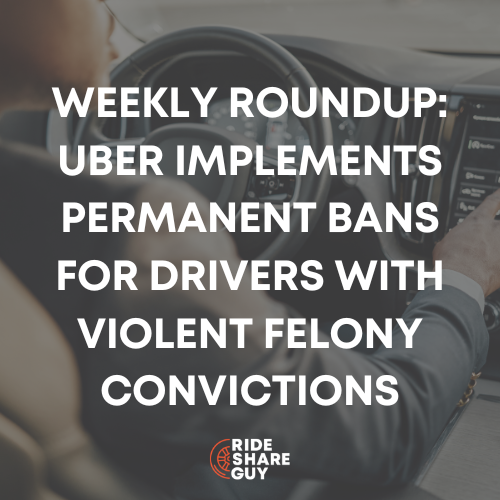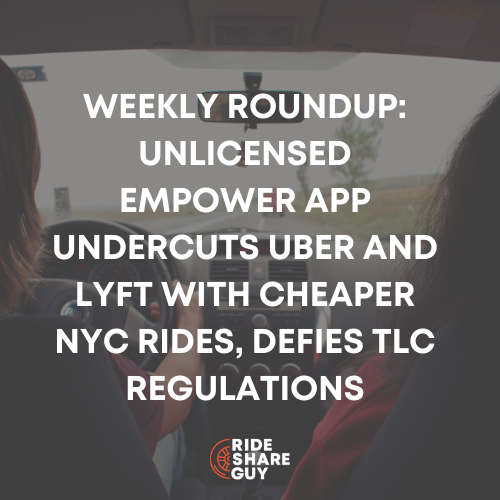Uber went through a frenzy of buying up startups that were in the rideshare and delivery milieu a few years ago. Now, they are ready to purge the alcohol delivery service Drizly from their ranks.
Kia signs a deal with Uber over modular electric vehicles, and DoorDash is hiking delivery fees in New York City. Plus, Vay brings remote driving to Las Vegas.
Join RSG Contributor Paula Lemar as she breaks down the top headlines in this week’s rideshare news.
Scoop: Uber Shutting Down Alcohol Delivery Service Drizly
Topic Originally Appeared On Axios
Summary
Uber has decided to shutter Drizly, an alcohol delivery service it bought three years ago for $1.1 billion, Axios has learned.
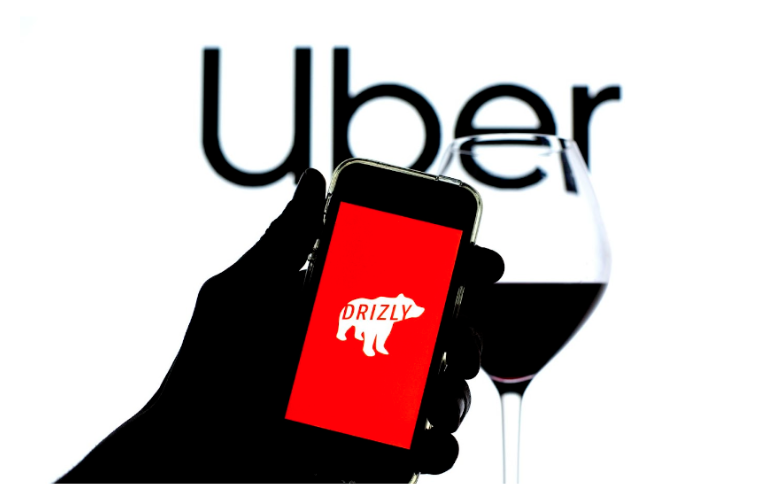
The big picture: Drizly was always a bit of an odd match for Uber in that it didn’t hire or contract its own delivery workers. Instead, Drizly provided backend tech that let local liquor stores provide their own deliveries.
- The bigger issue, however, might have been cybersecurity. In 2020, Drizly confirmed a hack that exposed information on around 2.5 million customers.
- What it didn’t say, however, was that the company had been aware of the security flaw for two years without fixing it.
- That information was discovered by the Federal Trade Commission after Uber’s acquisition of Drizly and led to an FTC order that restricted the types of customer information that Drizly could collect and retain.
My Take
Not every acquisition is worthwhile, and it seems Drizly wasn’t worth the hassle for Uber. The real question overall is if Uber is just going to fully dissolve Drizly or if it will sell it off to a competitor. It sounds like it’ll be shut down entirely.
I’d be curious to know how this change will affect those liquor stores that have used it for delivery services over the past few years. Will they still be able to continue delivery services on their own, or was Drizly essential for them to offer those services?
Kia Signs Deals With Uber For New Modular Electric Vehicles
Topic Originally Appeared On Fleet News
Summary
Kia has signed a deal with Uber to develop its newly revealed modular electric vehicles (EVs) for ride-hailing at the Consumer Electronic Show (CES) in Las Vegas.
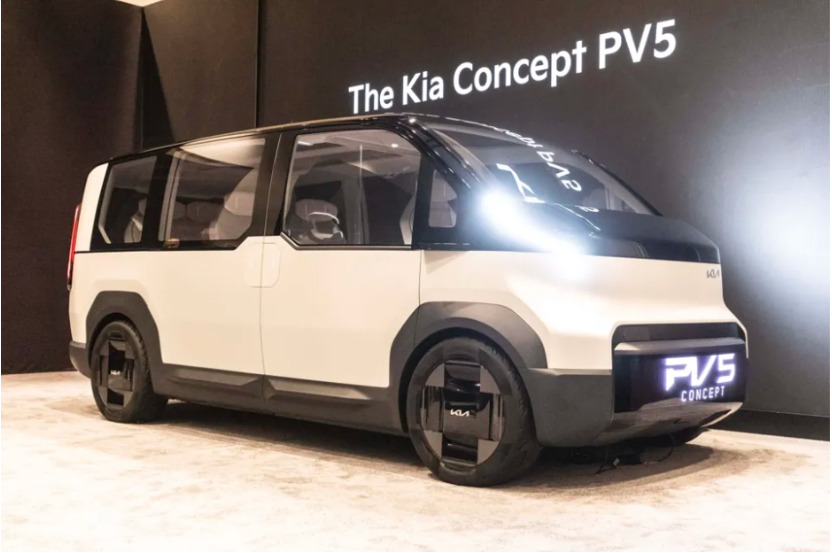
Kia’s PBV, which stands for Platform Beyond Vehicle, was unveiled by the manufacturer at the show earlier this week.
The manufacturer says its PBV proposition is built around a dedicated business system, integrating vehicles, software, and future technologies to “deliver added value.”
The Memorandum of Understanding (MoU) signed with Uber commits the two companies to collaborate on Kia’s planned development and deployment of PBVs.
My Take
This touts itself as a vehicle designed for rideshare driving. I’d be curious to know what features are integrated to be more rideshare-friendly. It sounds like they are looking at both the driver and passenger side of things to make improvements, but it wasn’t terribly clear what those improvements might be.
Obviously, with Uber’s goal of going zero emissions by 2030, this is a step in that direction, no questions asked. Anything that adds more EVs to their fleet is a push toward their green goals.
What vehicle improvements would better your experience as a driver? Share in the comments!
Vay Begins Commercial Operation Of Remotely Driven EV Rides In Las Vegas
Topic Originally Appeared On Electrek
Summary
Eight months after announcing plans to enter the US market, European teledrive service Vay has officially begun commercial operations of its remotely operated EVs in fabulous Las Vegas.
Customers can now order a car delivered directly to them without a driver in the vehicle, hop in, drive off, and use it as long as they’d like.
Vay is a mobility on-demand specialist originally based in Berlin, Germany that has taken a remote-first approach to “driverless” vehicles. We use parentheses because Vay’s service entails a remote operator driving a given EV in its fleet to and from its customers.
The process enables customers to hop in a delivered EV, drive off, and park whenever they are done, alerting Vay to step back in and remotely return the car back to base.
My Take
Check out Harry’s thoughts about this on LinkedIn. He shares his experience with Vay, where he got to experience being a teledriver. He’s also interviewed Justin Spratt from Vay on his podcast.
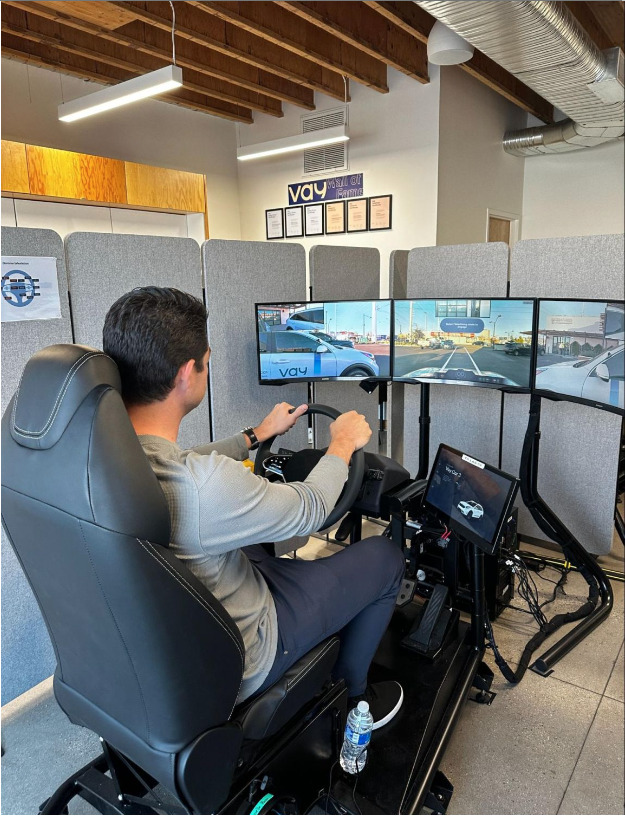
In the LinkedIn share, several commenters showed interest in Vay and their conception versus the “standard” driverless vehicle operations such as Waymo.
How would you like to be a driver for a vehicle without actually having to physically be in the vehicle? You’d be in a safe environment, earning an hourly wage, and have access to necessary training.
It’s certainly a different business model than we’re used to seeing. Some don’t agree with the concept of teledriving due to possible technology lag, limitations of vision in not being physically in the vehicle, etc.
But it certainly seems to show some promise while also keeping actual drivers on staff instead of relying fully on driverless technology.
Keep in mind, it doesn’t pick up passengers and then drive remotely; instead, the teledriver is in charge of “dropping off” the vehicle, which the customer will then drive to wherever they need to go.
After the experience is complete, the teledriver steps in once more to reroute the vehicle to its home base. I would certainly be more interested in this kind of position if it ever becomes available in my market.
This Week in Startups – Dara Khosrowshahi
Topic Originally Appeared On X
Summary
My Take
Check out Harry’s thoughts on X, and be sure to follow him for updates like this on a regular basis. Harry is always on the lookout for more rideshare news to share with you, our readers—anything and everything that affects rideshare and delivery.
DoorDash To Hike NYC Delivery Fees To Offset Minimum Wage Increase — Here’s How Much It Will Set You Back
Topic Originally Appeared On NY Post
Summary
DoorDash is raising delivery fees for Big Apple customers and restaurants alike in response to recent minimum wage hikes — driving already-stratospheric prices even higher, The Post has learned.
A month after city legislation forced food-delivery apps to pay higher hourly wages – at least $17.96 an hour – DoorDash told restaurants that they would be paying a higher commission rate effective Wednesday, according to a memo obtained by The Post.
The memo also warns that because of the “extreme minimum pay rate,” customer fees will go up “to help offset the increased costs.”
My Take
Well, these platforms always warn that providing a minimum wage means they’ll have to charge more to the customers.
So, here’s the worst they’ve got this time around. However, I think it’s a bit far to call having a required minimum wage for drivers to be labeled an “extreme minimum pay rate,” especially when, at least in my market, a lot of fast food jobs are paying at least $16 minimum wage, and that doesn’t involve the risks of driving.
So, on average, the customer is being asked to pay about $4 more per delivery to ensure their drivers are paid properly because, of course, the platforms wouldn’t dream of taking any money out of their earnings to pay their drivers properly.
If you’re in NYC, would an extra $4 prevent you from ordering food delivery? Would it prevent you from tipping? I’d love to hear from people who are actually going to be affected.
RSG in the News This Week
Read more trending topics in the news this week:
Must Listen Or Watch RSG Content
Here are this week’s featured podcast episode and YouTube videos:
- RSG251: How Vugo is Helping Fleet Owners Earn More With In Car Advertising
- Is Delivering DOORDASH Worth It In 2024?!
- Is Uber Calculating Tips Into Upfront Fares? Is This Even LEGAL?
- The Complete Guide to Using Destination Filters | Driver Diary with Sergio
- Make sure you Subscribe so you don’t miss out on future conversations and interviews!
